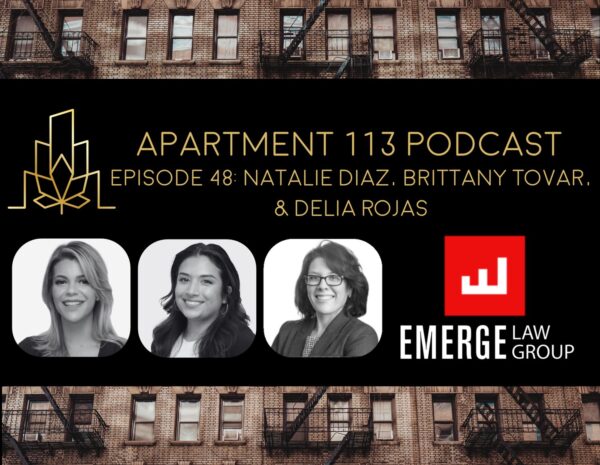CannaBeat is a curated biweekly selection of top news stories impacting business, research, and culture in the cannabis industry, crafted by Emerge Law Group.
Emerge’s Hot Take
New York Judge Blocks Retail Licensing: A Major Setback to State’s Fledgling Program
Launching a cannabis market has not been easy for any state, and New York is no exception. On August 18, 2023, New York Justice Bryant issued a Decision & Order granting in part a motion for a preliminary injunction to halt the Conditional Adult Use Retail Dispensary (“CAURD”) program. The CAURD program is available only to people with past New York marijuana convictions; and since opening in August of 2022, it has been under legal attack with three separate lawsuits. The plaintiffs of the current case argue they have been improperly excluded from the state’s CAURD program and that the Office of Cannabis Management (“OCM”) should have opened the initial round of licenses to a broader scope of social equity applicants.
Although the order requires the OCM to stop processing most accepted applications, the Judge took into consideration the hardship that the licensees have endured and struck a small compromise. CAURD license holders that have completed all post-award application requirements (including final site plan approval) prior to August 7, 2023, are exempt from the injunction. The OCM provided a list of 30 licensees meeting this standard to the Judge on August 22nd. The plaintiffs objected to every licensee on that list in a filing on August 24th, with a hearing set for Friday the 25th to resolve the objections. The last little bit of hope the Judge gave was to allow any licensee not included on the list the opportunity to show that they too should be exempt by having the OCM file a motion on their behalf, which would be determined by the court on a case-by-case basis. Emerge Law Group’s New York attorney Duncan Delano believes that “This lawsuit is another bump in an already rocky road as the OCM tries to hold this CAURD program together. Unfortunately, this one seems to be sticking, so unless you are one of the CAURD licensees who has progressed all the way to the point of opening, you’re probably stuck under this injunction until October.” The OCM is set to open the applications for all license types to all types of applicants in the beginning of October. The final comment period for the proposed Adult Use Cannabis Regulations closed on July 31, 2023, meaning the final regulations should be released in the coming days or weeks.
Other Noteworthy News
Subscribe
Subscribe to CannaBeat to receive essential weekly articles on news, business, and culture in the cannabis industry, delivered straight to your inbox.



